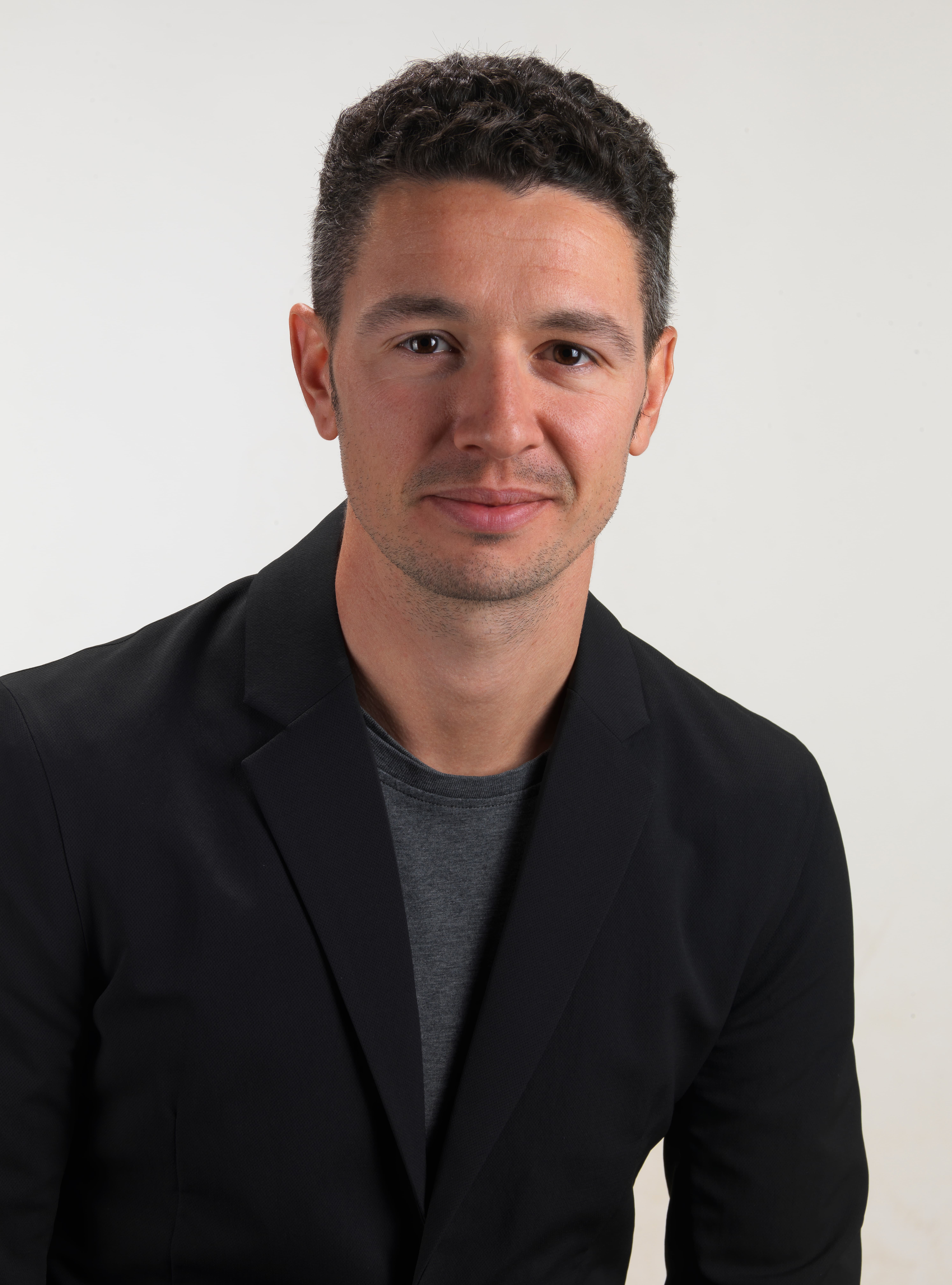Artificial Intelligence is reshaping the world, from automating tasks to raising profound ethical questions. At the heart of this transformation are researchers and policymakers ensuring AI’s responsible development. Among them are IHPST alumni, Kira Lussier and Filippo Sposini, whose work at the Canadian Institute for Advanced Research (CIFAR) is shaping Canada’s AI landscape. Their professional careers reveal the importance of an interdisciplinary approach, incorporating humanities and a social perspective to assess AI’s impact on Canadian institutions and society.
After earning her PhD in 2018 with a dissertation on the history of personality testing in U.S. corporate management, Kira pursued postdoctoral research on diversity training and the history of management at the University of Toronto Mississauga’s Institute for Management and Innovation, as well as Rotman’s Institute for Gender and the Economy. The end of her postdoc coincided with her maternity leave, prompting her to explore alternative academic careers in Toronto. “At the IHPST, I got involved in departmental initiatives like the student-run journal Spontaneous Generations and the University of Toronto Scientific Instrument Collection. I also served as HAPSAT President. These experiences were really valuable for building up my CV and informing my current work. Managing the journal review process relates directly to my current responsibilities in managing grant reviews,” she said. Kira’s HPS background, which considers science in a multidisciplinary context, has been invaluable in her role as Program Manager for AI Safety. CIFAR, she explains, funds and connects researchers to address significant, cross-disciplinary questions.

Filippo’s path to CIFAR was equally interdisciplinary. With experience in global scientific publishing and a PhD from the IHPST, he was already using AI tools in his previous roles. This positioned him well for a leadership role in CIFAR’s AI programs, where he now serves as a Program Manager within the Pan-Canadian AI Strategy. “Given AI’s global relevance and its role in Canada’s research ecosystem, CIFAR sought an internationally minded, data-driven Program Manager familiar with the Canadian research landscape and experienced in review management. Joining CIFAR was an exciting step, offering the unique chance to work at the intersection of government, research, and education. I feel privileged to be part of this organization, continually learning from colleagues dedicated to advancing Canada’s AI leadership,” Filippo said.
One challenge in AI research and policy is balancing the priorities of industry, academia, and government. CIFAR collaborates with leading AI institutes like Mila, Amii, and Vector to keep Canada at the forefront of global AI research. Filippo finds these partnerships rewarding: “Working with these institutes fosters groundbreaking research led by internationally recognized scholars, including Turing and Nobel Award recipients. A highlight for me is witnessing the enthusiasm and openness within this community, making collaboration both exciting and productive.” One of Filippo’s main responsibilities is to align the efforts of institutions that each bring unique perspectives to the table: “Each institution has distinct strengths, cultures, and strategic priorities. A key challenge is fostering collaboration rather than competition, especially in attracting and retaining AI talent in Canada. This requires clear, open communication among partners.”

From a safety perspective, Kira highlights the lack of overarching AI regulations in Canada as a pressing issue. “AI has tremendous potential in healthcare, workplaces, and beyond, but we need guardrails in place,” she says. “One major challenge is AI-generated misinformation, which has huge implications for politics and culture.” CIFAR does not advocate for specific policies but facilitates critical discussions through multidisciplinary research initiatives. “We recognize that these issues cannot be solved by technical perspectives alone,” Kira emphasizes. “We fund research and organize events that bring together different disciplines and domains to address these questions, including issues of misinformation, safety, and ethics.”
Filippo highlights the need for cross-sector collaboration in AI regulation: “Through CIFAR’s AI Insights for Policymakers program, I have seen how policymakers and researchers work to bridge the gap between cutting-edge research and practical implementation,” he said. However, AI evolves faster than traditional law-making processes. “Policymakers must become more agile, informed, and responsive. Effective AI governance will depend on strong, ongoing dialogue between researchers, policymakers, industry, and civil society to ensure AI is deployed responsibly.”
Both Kira and Filippo see historical parallels between AI debates and past technological shifts. Kira, who has studied the transition of psychological assessments from paper-based to computer-based systems in the 1960s-1980s, noted that during those years “proponents argued this would free up human labour and make testing more efficient. Detractors worried about replacing human expertise with technology and its ethical and scientific implications.” Today’s debates over large language models also mirror past discussions, Kira said. “The first chatbot, Eliza, was created in the mid-1960s for therapy. It sparked similar debates about the role of human expertise and the risks of human-technology interactions. Concerns around copyright then resonate with today’s discussions on AI-generated content.” Filippo draws comparisons to transformative inventions like the printing press, steam engine, and nuclear energy. “AI presents both opportunities and risks. Historically, powerful technologies have prompted important societal conversations about ethics, governance, and regulation. Similarly, AI compels us to proactively manage its societal impacts,” he noted.
Looking ahead, Filippo expects AI policymaking to require even closer collaboration between researchers, government officials, and industry leaders. “Canada’s AI ecosystem is positioned to thrive, thanks to strategic investments like the CIFAR AI Chairs program, which I oversee.” This program is a cornerstone of the Canada’s AI strategy, and Filippo manages its evaluation process. Having been an international student, he values the country’s strong research reputation: “Having benefited from Canada’s research excellence during my doctoral studies at the University of Toronto, I recognize its unique ability to attract and retain global talent.”
For Kira, the present and future of AI governance must address bias and social inequalities: “In the past few years, more attention has turned to the ways that bias can enter into AI systems, how AI systems can produce biased outputs, and how existing social inequalities and discrimination can be exacerbated by AI systems. This is a major area of research and policy intervention, one which requires sociotechnical approaches attuned to the ways that AI systems are developed and deployed.”


